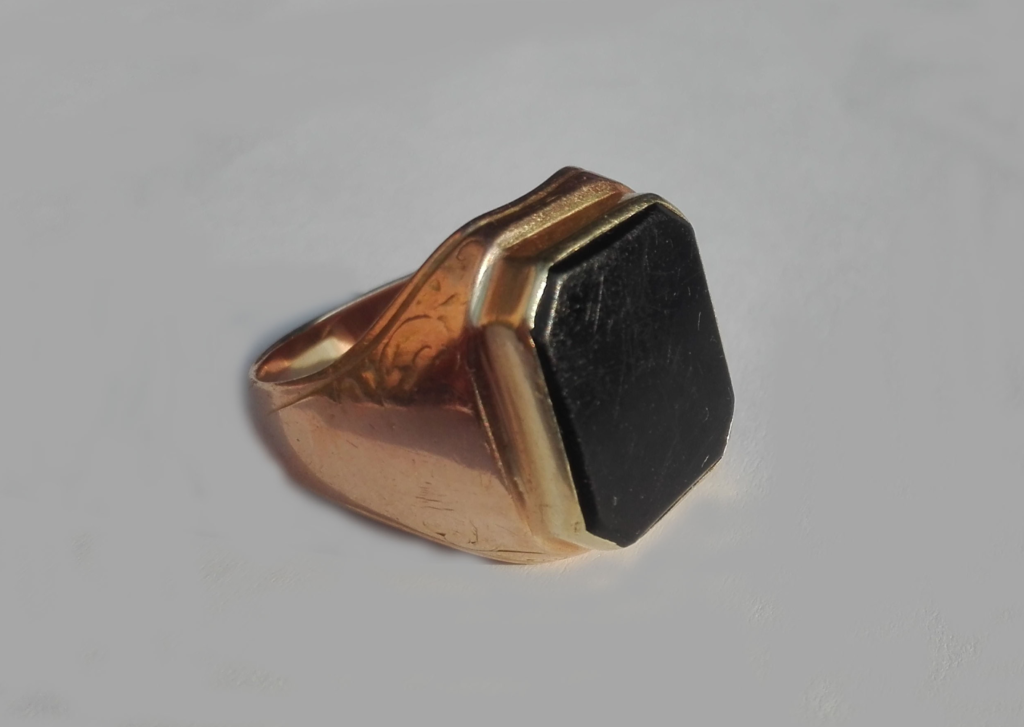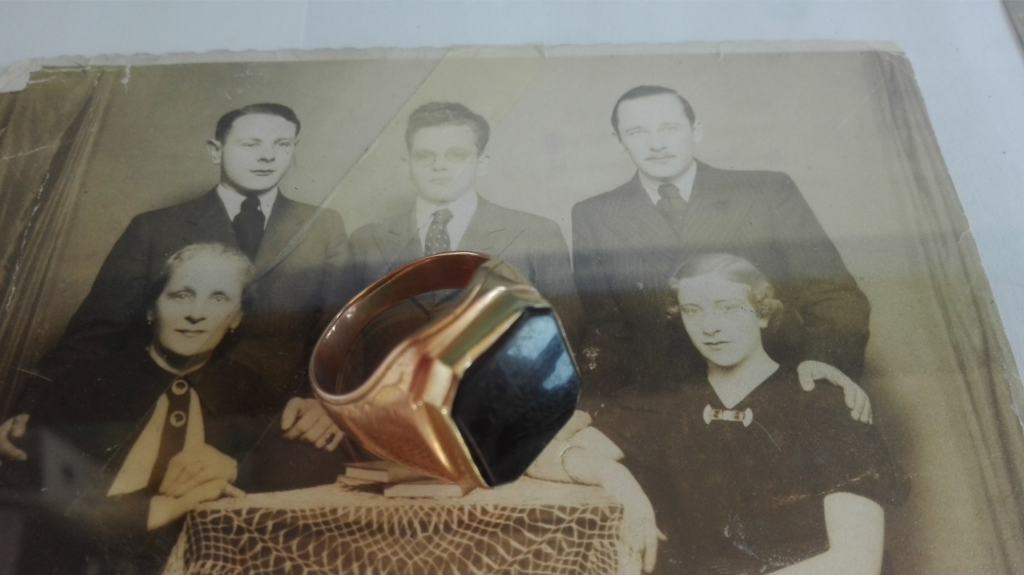THE GOLD RING / János Vajda
I have a gold ring I have been wearing for fifty years. I got it from my parents for my graduation. It had a small engraved pattern on the side, which has largely worn off by now. I had seen before under the handkerchiefs in my father’s drawer: there was a canvas bag, which I investigated as a child. The bag contained various objects, pieces of two gold necklaces a few centimetres long, rings and an old pencil. I already knew the history of these objects at the time, and it was these pieces that my ring was made of.
My father was born in Kunhegyes in 1912. Later they moved to Szolnok and lived there from 1917 onwards. My father’s father died early, and the three children lived with their mother. My father had a sister and a brother. His brother was taken to labour service to the bend of the Don River, and the family soon received a postcard that their son died a heroic death. A heroic death with a spade in his hand, you understand. My father was also taken to labour service, thus he was not at home when the Jews in Szolnok were rounded up and taken to the ghetto; he learned from the husband of a cousin, however, that his mother, before being taken away, visited her brother-in-law, Uncle Arnold in Öcsöd – they were not deported yet –, saying that she had a little gold and she did not know what to do with it or where to put it. Uncle Arnold offered to hide it in the gutter. My grandmother and her family joined Ernő Vágó’s group, I do not know why, perhaps they thought they would be in greater safety there, so they did not stay with Uncle Arnold, her brother-in-law. They were then taken to Auschwitz and immediately gassed… But Uncle Arnold’s family ended up in Austria and survived, because they only had to work and were also given some food, as the Austrians did not aim to exterminate them. So they came home. My father also survived, and when he came back from Mauthausen, he first went to Szolnok, but found nobody there, and then he tried the relatives, and finally went to Öcsöd, where Uncle Arnold told him to wait… then he reached into the gutter and took down the canvas bag.
But the story does not end here. Then came 1945 and the inflation, and my father moved to Pest because there was nothing to do in Szolnok, and then he traded this necklace for accommodation and food. He paid by cutting away small pieces of the gold necklace. I inherited this way of thinking from my father, as I also believe that if there is trouble, gold can be trusted. All that remained from the necklaces was kept in my father’s little canvas bag, and it was later turned into my gold ring.



